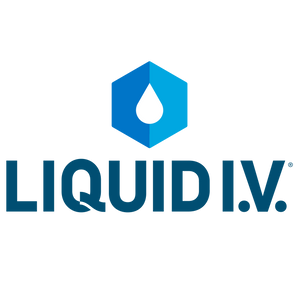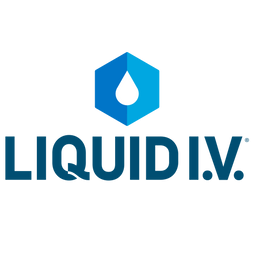Liquid I.V. Medical Director Brad Thomas, MD, on the Importance of Hyd
"Basically, dehydration leads to poorer performance and overheating. Hydration is critical."
Brad Thomas, MD
"Basically, dehydration leads to poorer performance and overheating. Hydration is critical."
Brad Thomas, MD
"Basically, dehydration leads to poorer performance and overheating. Hydration is critical."
Brad Thomas, MD
Liquid I.V. Medical Director Brad Thomas, MD, on the Importance of Hydration
We caught up with acclaimed Los Angeles–based orthopedic surgeon and Medical Director for Liquid I.V., Brad Thomas, MD, on everything from how Liquid I.V. works, to the importance of proper hydration for ultimate athletic performance.
How does Liquid I.V. work?
Liquid I.V. maximizes hydration (water uptake) by utilizing the co-transport of glucose and sodium across the abdomen and pulling water (H2O) along with it. With this optimal ratio of sodium to glucose, water is transported into your body faster than by drinking water alone.
What is Oral Rehydration Therapy (ORT)?
ORT is a form of fluid replacement that utilizes a combination of salt and glucose to treat and prevent dehydration. The molar ratio of sugar to salt is 1:1 which optimizes water uptake. Since its inception in the 1970s its use has decreased infant deaths by millions per year.
What’s Cellular Transport Technology (CTT)- is that the same thing as ORT/ORS?
CTT refers to the specific co-transport of glucose and sodium together across the intestine which triggers the flow of water into the cells. Having the correct ratio of sodium, potassium, glucose and water will optimize their process to enhance hydration of one’s body.
Can you talk about the ingredients of Liquid I.V.? Why is there sugar?
The ingredients of Liquid I.V. contain no preservatives, artificial flavors, artificial sweeteners or artificial colors, including the use of cane sugar and salts and vitamins. Sugar is strictly used as a functional ingredient to maximize water transport.
Does the single-stick serving size of 16g need to be mixed with exactly 16 oz of water in order to work?
This is the best ratio of ingredients for optimal hydration – so that is the ratio recommended, yes.
What does hydration have to do with performance? Everyone seems to know they need to be hydrated, but could you explain why?
Dehydration leads to decreased blood volume, which in turn leads to:
- Decreased skin blood flow
- Decreased sweat rate
- Decreased heat dissipation
- Increased core temperature
- Increased rate of muscle glycogen use
- Reduced maximal cardiac output and decreased VO2 max
Basically, dehydration leads to poorer performance and overheating. Hydration is critical.
Other than hydration, what are the benefits to taking Liquid I.V.? (Mental clarity, enhanced energy, etc?)
Overall improvement in just about every bodily function occurs with appropriate hydration, including cardiac function, liver function, kidney function and blood flow to peripheral tissues. The Vitamin C is an excellent antioxidant and the Vitamin B can improve one’s energy.
Similarly: What are other benefits of hydration: skin health, mental focus?
Proper hydration increases blood flow to the skin and enhances skin moisture, making it look healthier. The brain is 85% water, so even the slightest amount of dehydration can change ones mental performance.
How do hydration needs differ for both for high endurance and elite athletes, and a busy mom, for example? They both need to be hydrated, but could you explain the importance for athletes?
Athletic performance is directly linked to hydration and electrolyte management. Even sprint athletes need appropriate hydration to get the most out of their cardiac output and VO2 max. Endurance athletes will quickly suffer in the face of dehydration with decreased performance, muscle cramping, and overheating. It can be a dangerous situation.
Let’s talk about high endurance athletes a bit more. And you are one of course. What are their particular needs? How much Liquid I.V. should a long distance runner use for instance and what’s the ideal timing? For example, leading up to a big race, during a race, or post-race during recovery mode? Does timing matter?
Pre-hydration is an important concept for athletes, especially leading up to a big race. This optimizes muscle function and energy stores. For a distance athlete, one 16 oz bottle of Liquid I.V. one hour prior to racing and one bottle per hour during the race will do the trick. For races longer than two hours, an athlete will also need to manage replacing energy stores with food (combination of carbohydrates and fat).
How much water should the average person drink?
Most recommendations are around 1/2 gallon of water per day.


